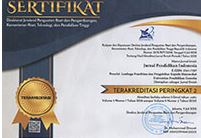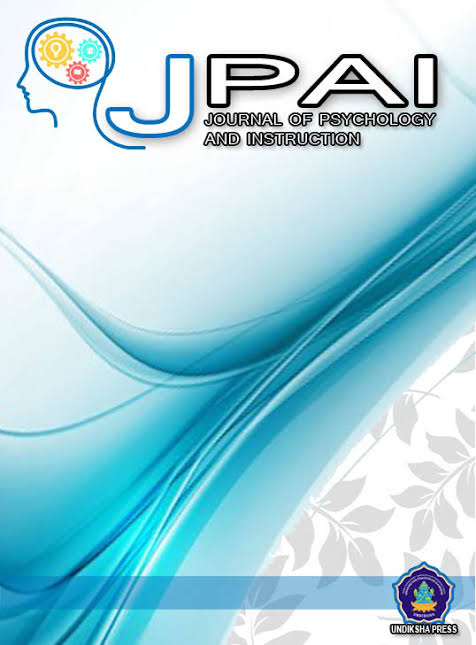Technoference: Technology as 'Third Person' in Romantic and Family Relationships
Keywords:
technology, technoference, romantic relationship, family relationshipAbstract
In the digital age, using technology has become a necessity for humans. Technology not only facilitates interaction, it can also be a distraction in relationship termed “technoreference”. This paper aims to provide a descriptive explanation of the negative impact of technology use on interpersonal relationships. Topics concerning the issue of technoference in interpersonal relationships include: (1) the concept of technoference in smartphone use; (2) technoference in romantic relationships; (3) technoference in family relations. According to the findings of several relevant scientific studies and researches, technoference is a disruption that occurs in everyday interactions as a consequence of the usage of technological devices. Technoference in romantic relationships indicates poor relationship quality and relationship dissatisfaction. Meanwhile, technoference in family relationships contributes to suboptimal parent-child interactions and child problem behaviors.
References
Acker, M., & Davis, M. H. (1992). Intimacy, passion and commitment in adult romantic
relationships: A test of the triangular theory of love. Journal of Social and Personal Relationships, 9(1), 21–50. doi: 10.1177/0265407592091002
Beamish, N., Fisher, J., & Rowe, H. (2018). Parents’ use of mobile computing devices, caregivin
and the social and emotional development of children: a systematic review of the evidence. Australasian Psychiatry, 27(2), 132–143. doi: 10.1177/1039856218789764
Boelen, M. (2014). “Hello! I am Sitting Right in Front of You...”: The Influence of Phubbing
Behaviour on Perceived Affiliation during Face-to-Face Conversations in Social Settings [Master’s thesis, Tilburg University, Tilburg]. http://arno.uvt.nl/show.cgi?fid=135236
Carbonell, X., Oberst, U., & Beranuy, M. (2013). The cell phone in the twenty-first century: A risk
for addiction or a necessary tool? Elsevier Inc., January, 901–909. doi: 10.1016/B978-0-12-398336-7.00091-7
Chotpitayasunondh, V., & Douglas, K. M. (2018a). The Effects of “Phubbing” on Social Interaction.
Journal of Applied Social Psychology, 48(6), 304–316. https://doi.org/10.1111/jasp.12506.
Chotpitayasunondh, V., & Douglas, K. M. (2018b). Measuring Phone Snubbing Behavior: Development
and Validation of the Generic Scale of Phubbing (GSP) and the Generic Scale of Being Phubbed (GSBP). Computers in Human Behavior, 88, 5–17. https://doi.org/10.1016/j.chb.2018.06.020
Drago, E. (2015). The Effect of Technology on Face-to-Face Communication. Elon Journal
of Undergraduate Research in Communications, 6(1). http://www.inquiriesjournal.com/articles/1137/the-effect-of-technology-on-face-toface-communication
Johnson, A. E. (2020). Phubbing, partner phubbing and relationship satisfaction among couples.
International Journal of Advanced Education and Research, 5(2), 19–23.
Krasnova, H., Abramova, O., Notter, I., & Baumann, A. (2016). Why Phubbing is Toxic for
your Relationship: Understanding the Role of Smartphone Jealousy among “Generation y” Users. Twenty-Fourth European Conference on Information Systems (ECIS), Istanbul, Turkey. https://www.researchgate.net/publication/301287646_Why_Phubbing_is_Toxic_for_Y our_Relationship_Understanding_the_Role_Of_Smartphone_Jealousy_among_Generat ion_Y_Users
McDaniel, B. T. (2015). “ Technoference ”: Everyday intrusions and interruptions of technology in
couple and family relationships. Family Communication in the Age of Digital and Social Media, 1–24.
McDaniel, B. T., & Coyne, S. M. (2016). “Technoference”: The interference of technology in couple
relationships and implications for women’s personal and relational well-being. Psychology of Popular Media Culture, 5(1), 85–98. doi: 10.1037/ppm0000065
McDaniel, B. T., & Drouin, M. (2019). Daily technology interruptions and emotional and relational
well-being. Computers in Human Behavior, 99, 1–8. doi: 10.1016/j.chb.2019.04.027
McDaniel, B. T., Galovan, A. M., Cravens, J. D., & Drouin, M. (2017). “Technoference” and
implications for mothers’ and fathers’ couple and coparenting relationship quality. Computers in Human Behavior. doi: 10.1016/j.chb.2017.11.019
McDaniel, B. T., & Radesky, J. S. (2018a). Technoference: Longitudinal associations between parent
technology use, parenting stress, and child behavior problems. Physiology & Behavior, 84(2), 210–218. doi: 10.1038/s41390-018-0052-6.
McDaniel, B. T., & Radesky, J. S. (2018b). Technoference: Parent Distraction With Technology and
Associations With Child Behavior Problems. Child Development, 89(1), 100–109. doi: 10.1111/cdev.12822
Roberts, J. A., & David, M. E. (2016). My life has become a major distraction from my cell phone:
Partner phubbing and relationship satisfaction among romantic partners. Computers in Human Behavior, 54, 134–141. doi: 10.1016/j.chb.2015.07.058
Sternberg, R. J. (1986). A triangular theory of love. Psychological Review, 93(2), 119–135. doi:
4324/9780203311851
Stockdale, L. A., Coyne, S. M., & Padilla-Walker, L. M. (2018). Parent and child technoference and
socioemotional behavioral outcomes: A nationally representative study of 10- to 20-year-Old adolescents. Computers in Human Behavior, 219–226. doi: 10.1016/j.chb.2018.06.034
Sundqvist, A., Heimann, M., & Koch, F. S. (2020). Relationship between family technoference and
behavior problems in children aged 4-5 years. Cyberpsychology, Behavior, and Social Networking, 23(6), 371–376. doi: 10.1089/cyber.2019.0512
Turkle, S. (2011). Alone Together: Why We Expect More from Technology and Less from
Each Other (1st edition). New York: Basic Books
Uusiautti, S., & Määttä, K. (2017). Will social media strengthen or threaten romantic love ? Journal
of Social Science, 6(4). doi: 10.25255/jss.2017.6.4.709.725.
Wang, X., Zhao, F., & Lei, L. (2019). Partner phubbing and relationship satisfaction: Self-esteem
and marital status as moderators. Current Psychology. doi: 10.1007/s12144-019-00275-0
Zurcher, J. D., King, J., Callister, M., Stockdale, L., & Coyne, S. M. (2020). “I can multitask”: The
mediating role of media consumption on executive function’s relationship to technoference attitudes. Computers in Human Behavior, 113, 106498. doi: 10.1016/j.chb.2020.106498










